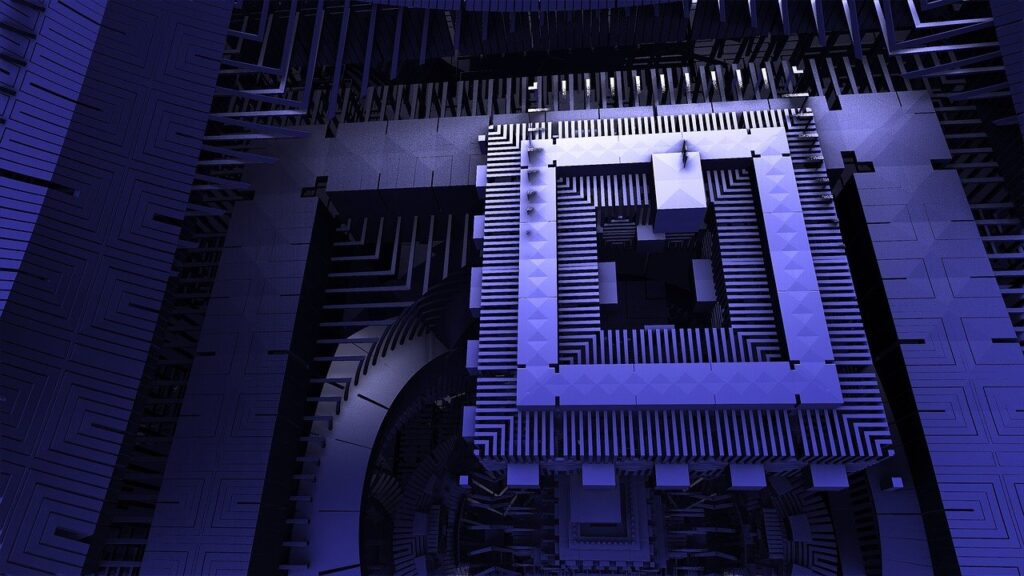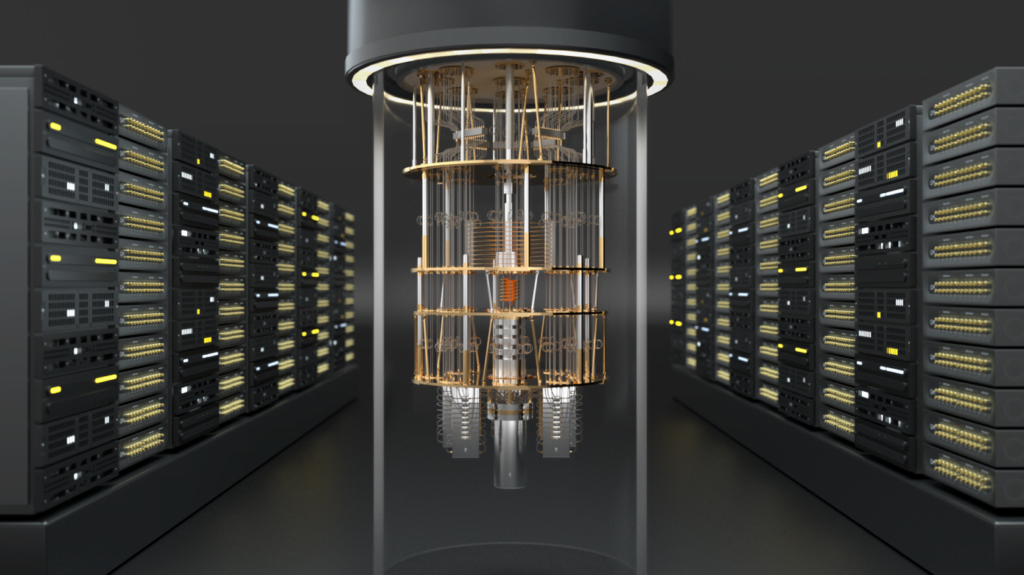The Israel Innovation Authority (IIA) and the Defense Ministry’s Directorate of Research and Development (MAFAT) announced on Tuesday that they will allocate NIS 200 million (about $62.1 million) to build Israel’s first quantum computer.
Quantum computation ability will lay the technological foundation for an Israeli ecosystem that will lead to future developments in security, economics, technology, engineering, and science, the organizations said.
Quantum computers, unlike classic computers, are based on the properties of quantum physics to store data and perform vast amounts of computations. They can be extremely beneficial for certain tasks where they could considerably outperform even the best supercomputers.
Quantum computing “significantly reduces calculation time frame and therefore constitutes a significant leap in computational capabilities,” a joint statement from IIA and MAFAT said.
Israel’s investment in the quantum computer will be directed towards two tracks. In the first track, the Israel Innovation Authority will focus on building and developing a quantum computational infrastructure for running calculations directly or via cloud access, to optimize or improve different elements in quantum computing. The infrastructure will assess existing algorithms and will implement research and development in all layers of software and hardware, but will not include fabless installations. Technology from abroad may be partially used initially, but then the infrastructure will be integrated with Israeli-developed quantum processors and technologies.

The Defense Ministry said MAFAT will establish a national center with quantum capabilities that will be at the center of an Israeli ecosystem that will establish local capabilities. The center will collaborate with academia, industry, and the organizations that make up the National Research and Development Infrastructure (TELEM) to deal with the numerous layers in developing a quantum processor, such as hardware, control, optimization, algorithmics, and interfacing aspects. The goal is to develop a complete quantum computer
“Quantum computing, on all levels, is showing signs of being an important future component of the state’s security and its technological superiority. Starting this process in the framework of the national program constitutes a significant step towards achieving Israeli independence in this area.” said Dr. Danny Gold, head of MAFAT.
The investment in quantum computing is added to the investments of tens of millions of shekels that has been carried out so far in the technological development among companies and researchers, as part of the National Quantum Science & Technologies Program, which was launched around two years ago by the TELEM Forum (National Research and Development forum), with a budget of NIS1.25 billion (about $388 million.) This forum is made up of MAFAT, the Israel Innovation Authority, the Planning and Budgeting Committee, the Ministry of Innovation, Science and Technology, and the Finance Ministry. Implementation of this key element constitutes an important milestone in the national program.
The Israel Innovation Authority and the Defense Ministry’s Directorate of Research and Development ( will continue to work to position Israel as one of the international leaders in quantum.
“Quantum computing is a technology Israeli industry cannot ignore. The industry must develop knowledge and access to infrastructure in which it can develop growth engines for activities in which it will decide to lead,” said Dror Bin, Israel Innovation Authority CEO.
Moving forward with quantum computing
In December, NoCamels called quantum computing one of its 7 Tech Trends Where Israel Could Make An Impact In 2022.
Prior to the announcement that Israel would build its first quantum computer, the Israeli government made a strong effort to push Israel forward in this field.

In 2019, the Knesset committed nearly $400 million to a five-year National Quantum Initiative which included $60 million towards the effort of producing a quantum computer at the time. Israel’s National Quantum Initiative is a joint venture between the Council for Higher Education, the Israel Innovation Authority, the Ministry of Science, the Ministry of Defense and the Ministry of Finance. The organizations confirmed that activity in quantum computing is “booming” and that there is already there is a 30 to 40 percent increase in academic activity, and a jump from a small number of industries to several dozen industries, both small and large.
Sign up for our free weekly newsletter
SubscribeThe Israel Innovation Authority under its MAGNET Consortiums project , has created a consortium that includes members from the industry and academia. Dubbed The Quantum Technologies Development Consortium, the group includes companies like Quantum Machines, the creator of complete hardware and software solution for the control and operation of quantum computers, QuantumLeap, a startup specializing in quantum-as-a-service (QaaS) solutions, and Nitromia, a privacy solution that bridges and enables quantum-safe transactions on any platform (on private or public networks) to provide complete privacy for any type of data, among others.
The consortium’s research is aimed at gaining improved technologies by cooperation between the researchers, which will boost the industry towards improved quantum sensors, namely, atomic clocks, quantum magnetometers and quantum gravimeters.
In October Physics Today magazine reported that Israel has become a “powerhouse” in quantum technologies, thanks to a supportive govermment, available capital, and world-class academic institutions, as well as other factors. The publication also reported that there has been a leap from five to 30 quantum-based companies in Israel over the last two years.
Also in December, Hebrew University Physicist, Dr. Shlomi Kotler, won Physics World’s 2021 Breakthrough of the Year award, presented by the UK-based Institute of Physics to two research teams who advanced the understanding of quantum systems.
His team successfully quantum-mechanically entangles two drumheads that can be used as quantum sensors or nodes in a quantum network.
Physics World editors chose this year’s winners from nearly 600 published research articles and wrote the winners demonstrated “important work for scientific progress and/or the development of real-world applications.”
Itamar Sivan, CEO and co-founder of Quantum Machines told Physics Today that he has no doubt that quantum computing will become influential and it’s ultimately a question of “When?”He also credited his company’s success to the easy accessibility to funding for quantum based-firms.
Jon Medved, CEO of Israeli active crowdfunding platform OurCrowd said 2022 “will see quatum computing atract continued strong inerest from investors” and that “global quantum VC investment will more than double from 2021’s $1 billion.”
“In a decade from now, Quantum will be ubiquitous, and will be an order of magnitude larger in investment and revenues,” he told NoCamels.
With reporting by Adam Shnider
Related posts

Editors’ & Readers’ Choice: 10 Favorite NoCamels Articles

Forward Facing: What Does The Future Hold For Israeli High-Tech?

Impact Innovation: Israeli Startups That Could Shape Our Future




Facebook comments